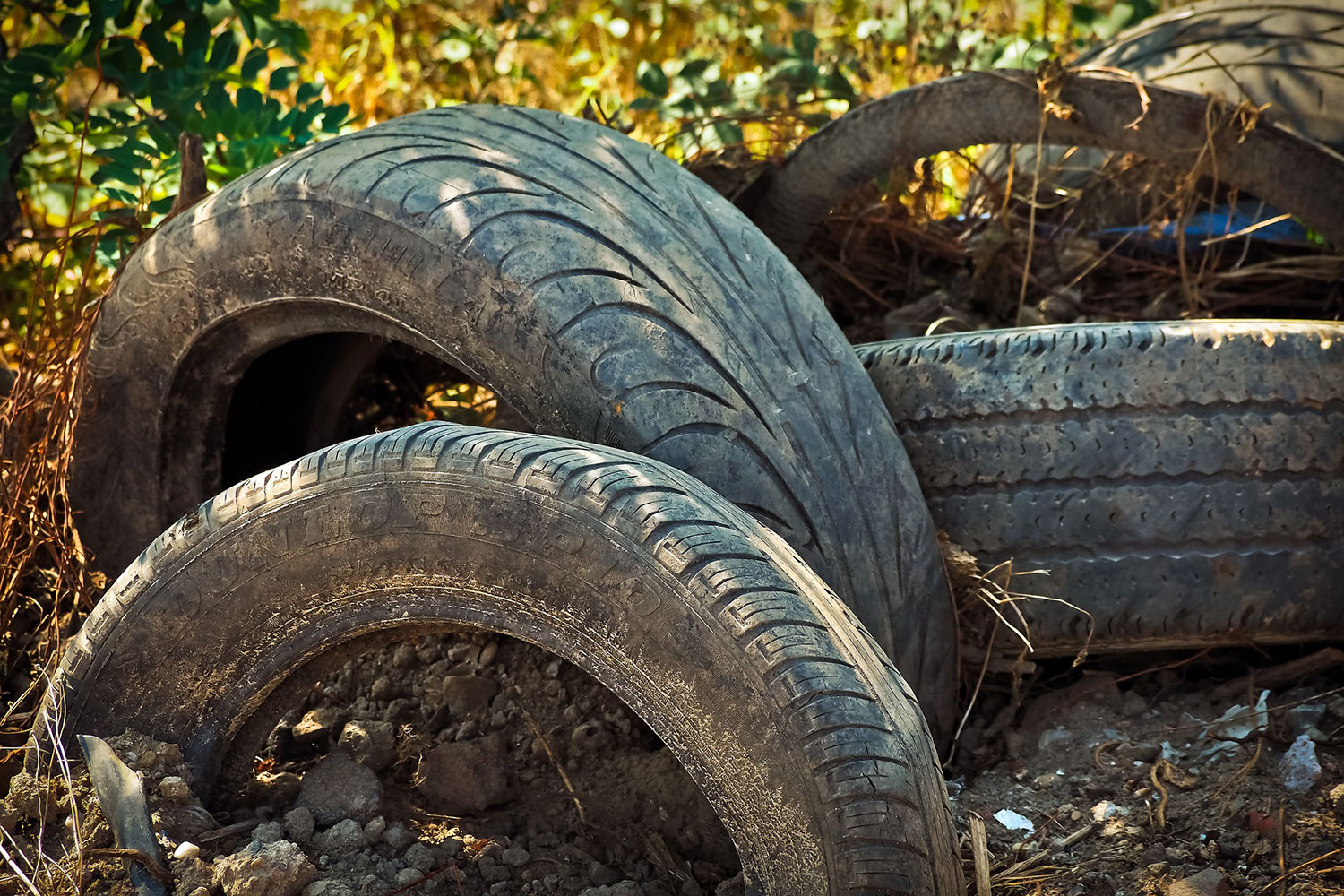
Car tires are a major global and growing waste problem. Globally, approximately 1.5 billion vehicle tires are discarded each year. Less than 1% of these are reused, with the rest being unaccounted for or dumped in landfills.
A team of researchers from the University of South Australia and Melbourne’s RMIT University demonstrated that crumb rubber concrete is a safe, economically viable, and sustainable alternative for residential construction, proving a much-needed new market for end-of-life tires. While the new crumb rubber concrete has shown a lot of promise in laboratory testing, it is essential to understand whether satisfactory performance can be replicated in real-world structures.
To investigate its practical application in residential settings, researchers poured two residential slabs (one with crumb rubber concrete and the other with conventional concrete) at the University of South Australia’s Mawson Lakes campus in October 2018. These slabs have been monitored for more than two years, and the crumb rubber concrete slab continues to perform well, the team says.
“We found that reinforced crumb rubber concrete (with up to 20% sand replacement by volume) is superior to conventional concrete in some ways, with higher impact resistance, toughness, and ductility, a higher damping ratio, better thermal and acoustic insulation, and a lighter weight,” co-researcher Dr. Osama Youssf says. “With respect to pumping, screeding, or finishing the concrete surface using a power trowel, contractors also reported no difference between using the crumb rubber concrete and conventional concrete, saying that the crumb rubber mix actually required less physical effort across all aspects.”
By recycling end-of-life tires in concrete, valuable natural resources can be conserved, and the current tire landfill problem can be partially resolved. In addition, concrete manufacturing is highly energy- and emissions-intensive because of the extreme heat required to produce it. When it begins to crack, degrade or fail, the structures need to be replaced, placing yet more strain on the environment. Making more durable and reliable forms of it will be beneficial. The new research is an exciting development for both the recycling and construction industries.
According to the researchers, their research is the first to practically demonstrate and construct the new crumb rubber concrete mix in the field, literally taking the work from lab to slab.
“The results clearly show that crumb rubber cement is a viable and promising alternative to conventional concrete in the residential concrete market,” co-researcher UniSA’s Professor Yan Zhuge says. “We strongly recommend that the concrete industry considers crumb rubber concrete as a sustainable alternative to conventional concrete in reinforced residential constructions in Australia.”
Concrete made from recycled tires can be a safe, green alternative
Source: Global Access News

No comments:
Post a Comment